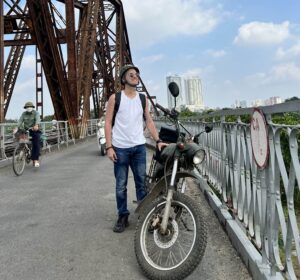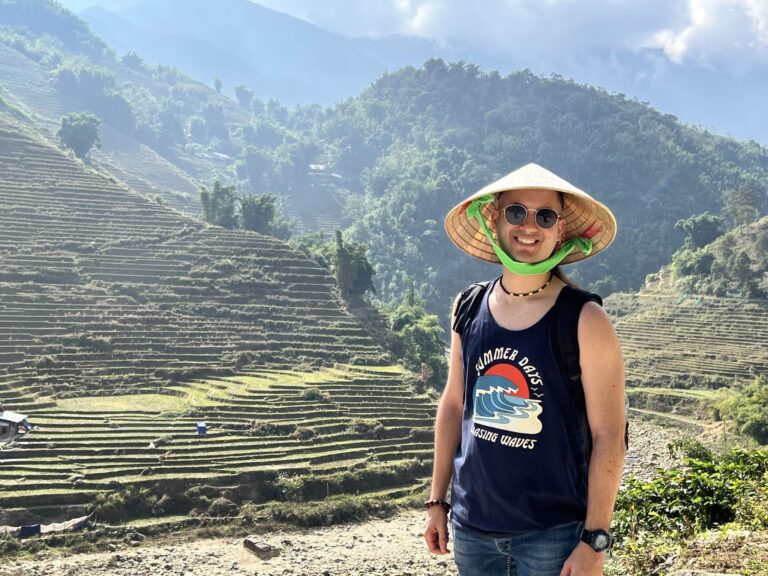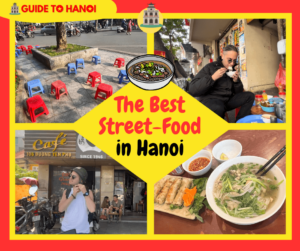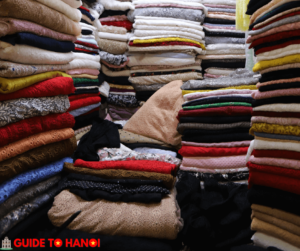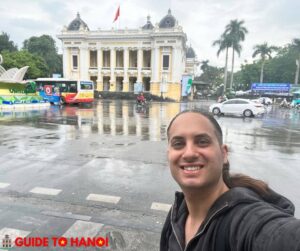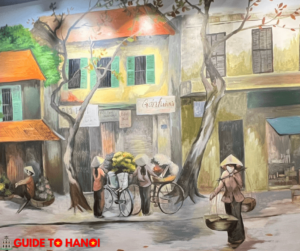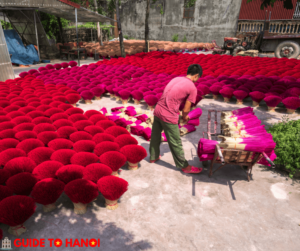Welcome to our comprehensive guide on ‘Health in Hanoi, Vietnam.’
Nestled in Southeast Asia, Hanoi, the bustling capital of Vietnam, is a city that effortlessly blends centuries of history with the vibrancy of modern life.
As you explore the rich culture, stunning landscapes, and delectable cuisine, it’s equally important to be well-informed about the healthcare landscape in this captivating city.
In this guide, we will delve into the availability and cost of healthcare, vaccinations, health precautions, and essential medical information, ensuring you can enjoy your journey with peace of mind, knowing you’re prepared for any health-related eventualities.
Whether you’re a traveler, expatriate, or simply curious about healthcare in Hanoi, this guide is your gateway to understanding the healthcare ecosystem in this dynamic and beautiful city.
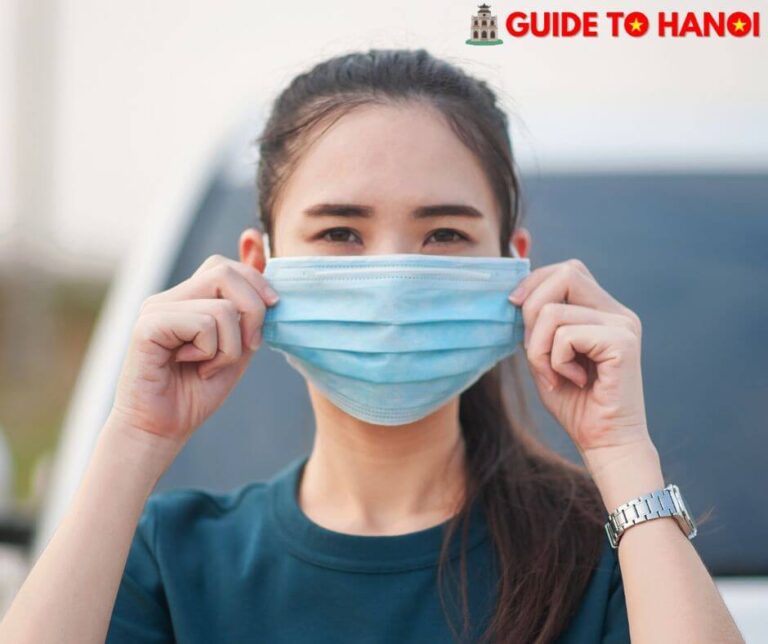
Health Insurance
Health insurance is becoming more prevalent in Vietnam, with the government promoting various insurance schemes.
Residents and expatriates should have comprehensive health insurance to cover medical expenses.
Don’t travel to Hanoi or Vietnam without health insurance unless you want to gamble with your health and finances.
Air Pollution
Hanoi is facing a big problem with air pollution, which has been recognized as one of the world’s most polluted cities.
The city’s toxic air results from rapid urbanization coupled with heavy industries and an increasing number of vehicles.
Always wear protective masks in Hanoi and consider investing in an air purifier for your home if you plan to stay long-term.
Food Safety and Tap Water
Food safety and tap water quality can be a concern for visitors to Hanoi.
To avoid potential foodborne illnesses, it’s best to stick to reputable restaurants and street vendors with good hygiene practices.
As for tap water, it’s generally not safe to drink in Hanoi.
But don’t worry; you can easily find affordable bottled water or invest in a portable filter bottle for convenience.
Healthcare Infrastructure
Hanoi, the capital of Vietnam, has a relatively better healthcare infrastructure compared to rural areas of the country.
There are numerous public and private hospitals, clinics, and medical facilities in the city.
Public Healthcare
The Vietnamese government provides public healthcare services, and residents can access district and provincial hospitals.
These services are often affordable, but there can be issues with overcrowding and long waiting times.
Private Healthcare
Private healthcare services are also available in Hanoi, which are preferred by many expatriates and wealthier locals.
These facilities often offer more advanced medical technology and shorter waiting times but can be more expensive.
Quality of Care
The quality of healthcare in Hanoi can vary.
While there are some excellent facilities with well-trained staff, there are also concerns about inconsistent quality, especially in rural areas.
Medical standards are improving, but there may still be discrepancies between public and private healthcare.
Communicable Diseases
Like many countries, Vietnam has faced health challenges such as the Zika virus, Dengue fever, and the occasional outbreak of diseases like avian influenza.
The government has measures in place to address such issues.
Environmental Concerns
Hanoi, like many rapidly growing cities, faces environmental challenges. Air pollution is a significant concern, and it can adversely affect respiratory health.
Pharmacies
Pharmacies are common in Hanoi, and many medications are available over the counter.
However, it’s vital to ensure the quality and authenticity of the medicines you purchase.
Vaccinations
Before traveling to Hanoi or any part of Vietnam, it’s essential to check which vaccinations are recommended or required.
Some vaccines, such as hepatitis A and typhoid, are often recommended for travelers.
Language Barrier
In public healthcare facilities, English proficiency among healthcare workers can be limited. However, in private facilities and some international clinics, you are more likely to find English-speaking staff.
It’s essential to research and plan your healthcare needs before traveling to or residing in Hanoi.
It’s advisable to have adequate health insurance, know the location of nearby medical facilities, and be aware of any health advisories or recommendations from your home country’s embassy or consulate.
Medical checklist
A medical checklist for traveling is an essential tool to help ensure you have all the necessary health and medical items for a safe and comfortable trip.
Here’s a checklist to consider when preparing for your travels:
Before You Travel:
- Health Insurance: Ensure your health insurance is valid during your trip and covers international travel. Carry a copy of your insurance card and emergency contact information.
- Travel Vaccinations: Check if any vaccinations are required or recommended for your travel destination. This may include vaccines for yellow fever, typhoid, or hepatitis.
- Prescription Medications:
- Pack an ample supply of your regular prescription medications, as well as a little extra in case of delays.
- Carry a copy of your prescription and a doctor’s note for controlled substances.
- Research the legality of carrying prescription medications in your destination country.
- Over-the-counter Medications: Include essential over-the-counter medications like pain relievers, antacids, antihistamines, and any specific medications you commonly use.
- First Aid Kit: Assemble a compact first-aid kit with band-aids, antiseptic wipes, adhesive tape, scissors, tweezers, and gauze.
Personal Health and Hygiene:
- Medical Records: Make photocopies of essential medical records, including allergies, medical conditions, and recent test results.
- Contact Information: Keep a list of emergency contacts, including family members, your primary care physician, and any specialists you see.
- Allergies: Carry a card or wear a medical alert bracelet for severe allergies.
- Health App: Download a health app or carry a medical information card that includes your blood type, allergies, and any existing medical conditions.
During Travel:
- Hand Sanitizer: Pack hand sanitizer or disinfecting wipes to maintain good hand hygiene, especially during travel.
- Reusable Water Bottle: Staying hydrated is essential. Carry a reusable water bottle with clean, safe drinking water.
- Insect Repellent: Depending on your destination, bring insect repellent to prevent insect-borne diseases like malaria or Zika.
- Sun Protection: Don’t forget sunscreen, sunglasses, and a wide-brimmed hat to protect yourself from the sun’s harmful rays.
- Motion Sickness Remedies: If you’re prone to motion sickness, pack remedies like motion sickness bands or medication.
Additional Considerations:
- Travel Insurance: Consider purchasing travel insurance that covers medical emergencies, trip cancellations, and other unforeseen events.
- Local Health Services: Research the location of local hospitals, clinics, and pharmacies at your destination in case you need medical assistance.
- Medical Kit for Specific Activities: If your trip involves specific activities like hiking or water sports, bring additional medical supplies tailored to those activities.
- Emergency Kit: Prepare an emergency kit with a flashlight, batteries, a whistle, and essential tools.
- Health Precautions: Be aware of local health advisories, such as disease outbreaks or health-related restrictions.
- COVID-19 Considerations: Stay informed about COVID-19 requirements and restrictions at your destination, including vaccination and testing requirements.
Remember that the specific items you need may vary depending on your destination, the nature of your trip, and your individual health needs. It’s a good idea to consult with a healthcare provider before traveling to ensure you’re adequately prepared for any health-related contingencies during your journey.
| Aspect | Description |
|---|---|
| Healthcare Infrastructure | Public & Private Hospitals |
| Public Healthcare | Affordable but crowded |
| Private Healthcare | Higher cost, better quality |
| Health Insurance | Increasingly prevalent |
| Common Diseases | Dengue, Malaria, TB, HIV/AIDS |
| Vaccinations | Hepatitis A, Typhoid, etc. |
| COVID-19 Considerations | Vaccination, Travel Updates |
| Bedbug & Leech Concerns | Prevention & Treatment |
| Water & Food Safety | Preventing Traveler’s Diarrhea |
| Routine Vaccinations | MMR, Tdap, Hepatitis B |
| Recommended Vaccinations | Hepatitis A, Typhoid, etc. |
| COVID-19 Vaccination | Stay up-to-date |
Availability and Cost of Healthcare
Healthcare in Hanoi, Vietnam, is generally available and more affordable than in many Western countries.
Still, the quality and cost of care can vary depending on whether you opt for public or private healthcare facilities. Here’s an overview of healthcare availability and costs in Hanoi:
Public Healthcare:
- Availability: Public healthcare facilities are widely available throughout Hanoi and Vietnam. These include district hospitals, provincial hospitals, and commune health centers.
- Cost: Public healthcare services in Vietnam are subsidized by the government and are relatively affordable for citizens and residents. The cost of treatment in public hospitals is generally low. However, these facilities can be crowded, and the quality of care can vary. Foreigners may also face language barriers and limited English-speaking staff.
Private Healthcare:
- Availability: Private healthcare facilities in Hanoi are increasingly prevalent, and numerous private hospitals and clinics cater to both locals and expatriates.
- Cost: Private healthcare services are typically higher quality and can provide more efficient care. However, they come at a higher cost compared to public facilities. Prices vary significantly depending on the hospital and the specific treatment or service required. While private healthcare in Vietnam is cheaper than in many Western countries, it can still be relatively expensive for major medical procedures. It’s essential to have health insurance to help cover these costs.
Health Insurance:
- Health insurance is becoming more common in Vietnam. The government has been promoting various health insurance schemes to improve access to healthcare.
- Residents and expatriates should have comprehensive health insurance, which can help cover the costs of private healthcare and provide access to better quality care.
Infectious Diseases
In Vietnam, like many other countries, several infectious diseases have been of concern. Here’s a brief overview of some of the notable infectious diseases:
Avian Influenza (Bird Flu):
Vietnam has experienced sporadic outbreaks of avian influenza, primarily affecting poultry. While human cases have occurred, they are relatively rare, and the government has implemented measures to control the spread.
Dengue Fever:
Dengue fever is a prevalent mosquito-borne viral disease in Vietnam, with cases reported yearly. Prevention through mosquito bite avoidance is crucial.
Tuberculosis (TB):
TB remains a health concern in Vietnam, with efforts to control the disease, including vaccination and treatment programs.
HIV/AIDS:
Vietnam has a significant number of people living with HIV/AIDS. The government has implemented prevention and treatment programs.
Malaria:
Malaria is present in some parts of Vietnam, particularly in remote and forested areas.
Preventive measures, such as using mosquito nets and taking antimalarial medication, are recommended for travelers to affected regions.
Hepatitis:
Hepatitis A and B are prevalent in Vietnam. Immunization is recommended for hepatitis B.
Zika Virus:
Vietnam has reported cases of Zika virus, which is transmitted by Aedes mosquitoes. Pregnant women are at particular risk due to the link between Zika and birth defects.
Chikungunya:
This mosquito-borne viral disease has been reported in Vietnam, causing symptoms similar to dengue fever.
Typhoid Fever:
Typhoid fever is a bacterial infection in Vietnam, and travelers are advised to take precautions regarding food and water safety.
Japanese Encephalitis:
In some regions, Japanese encephalitis, a mosquito-borne viral disease, is a concern. Vaccination may be recommended for travelers to affected areas.
Hand, Foot, and Mouth Disease (HFMD):
HFMD, caused by various viruses, can affect both children and adults. Outbreaks have occurred in Vietnam, and good hygiene practices are essential.
Measles:
Measles is a highly contagious viral disease that can cause severe illness. Vaccination is an effective way to prevent it. Measles cases have occurred in Vietnam, so travelers should ensure their vaccinations are current.
Rabies:
Rabies is a deadly viral infection that can be transmitted through animal bites. Rabies is present in Vietnam, and post-exposure prophylaxis (PEP) should be sought if bitten by a potentially rabid animal.
Schistosomiasis:
Schistosomiasis is a parasitic disease transmitted through contaminated freshwater. It’s generally not a significant concern in Vietnam, but avoiding swimming in freshwater bodies is a preventive measure.
Sexually Transmitted Infections (STIs):
Like many countries, Vietnam has cases of STIs. Safe sexual practices and regular medical check-ups are crucial for prevention and early treatment.
Travelers’ Diarrhea:
Travelers’ diarrhea is a common concern for travelers to Vietnam. It’s typically caused by consuming contaminated food or water. Staying hydrated and practicing good food and water hygiene can help prevent it.
Typhus:
Typhus is a group of diseases caused by different bacteria. In Vietnam, scrub typhus, transmitted by chiggers, has been reported in some regions. Avoiding contact with chiggers and using insect repellent can help prevent it.
COVID-19:
As with many other countries, the COVID-19 pandemic has affected Vietnam, with various measures implemented to control the spread of the virus, including lockdowns, testing, and vaccination campaigns.
Please check the latest information and advisories before traveling to Vietnam to stay informed about potential health risks.
By taking necessary precautions, being prepared, and having adequate health insurance, you can have a safe and enjoyable trip to Hanoi, Vietnam.
Bites and Stings in Hanoi
In Vietnam, as in many other countries, insects and creatures can bite or sting humans, including bedbugs and leeches.
Here’s what you need to know about dealing with these two types of bites and stings:
Bedbug Bites:
Bedbugs are small, blood-feeding insects that can infest bedding and furniture, especially in accommodations like hotels or hostels. Bedbug bites are typically not dangerous but can be itchy and uncomfortable. Here’s how to handle them:
- Prevention: Check your accommodation for signs of bedbugs, such as minor reddish-brown bugs, tiny white eggs, or small brown fecal spots on bedding or mattresses. Use protective bed bug covers for your mattress and luggage.
- Treatment: If you suspect bedbug bites, wash the affected area with soap and water. Applying over-the-counter anti-itch creams or taking antihistamines can help relieve itching and discomfort.
- Luggage and Clothing: Carefully inspect your luggage and clothing for any signs of bedbugs before leaving your accommodation. If you suspect you’ve encountered bedbugs, wash and dry your clothing on high heat to kill potential pests.
- Inform Management: If you find bedbugs in your accommodation, notify the management immediately. They should take steps to address the issue.
Leech Bites:
Leeches are bloodsucking worms in wet and swampy areas, such as rainforests or rice paddies. While leeches are generally harmless, their bites can be disconcerting and may cause minor bleeding.
Here’s how to deal with leech bites:
- Prevention: When traveling where sponges are common, wear long, tight-fitting clothing that covers your legs and ankles. Use leech socks or gaiters to prevent leeches from attaching to your skin.
- Removal: If a leech attaches to your skin, don’t panic. To remove it, use a flat, hard object (like the edge of a credit card or your fingernail) to gently slide it off your skin without crushing it. Avoid using salt or a flame, as these methods irritate the skin, or the sponge may regurgitate bacteria into the wound.
- Wound Care: Leech bites often bleed due to the anticoagulants leeches release. Apply mild pressure to the wound with a clean cloth or tissue until the bleeding stops. Clean the wound with antiseptic and cover it with a bandage.
- Infection: While leech bites are generally not a significant health risk, monitor the wound for signs of infection, such as redness, swelling, or increased pain. Seek medical attention if you notice these signs.
Being prepared and taking precautions when traveling in leech-prone areas can help minimize the risk of leech bites. In the case of bedbugs, inspecting your accommodation and practicing good hygiene can help prevent infestations and bites.
Required and Recommended Vaccinations
When traveling to Hanoi, Vietnam, you must be up-to-date on routine vaccinations and consider additional vaccines based on your specific circumstances and travel plans.
The recommended and sometimes required vaccinations for Hanoi, Vietnam, may include:
Routine Vaccinations:
- Measles, Mumps, Rubella (MMR): Ensure you have received two doses of the MMR vaccine if you were not born before 1957.
- Tetanus, Diphtheria, and Pertussis (Tdap): A Tdap booster is recommended every 10 years.
- Hepatitis B: It’s advisable to be vaccinated against hepatitis B if you haven’t been already.
Recommended Vaccinations:
- Hepatitis A: This vaccine is recommended for most travelers to Vietnam, as hepatitis A can be transmitted through contaminated food and water.
- Typhoid: Typhoid vaccination is advisable for travelers who plan to eat or drink outside of major restaurants and hotels.
- Japanese Encephalitis: Depending on the time of year and specific travel activities, this vaccine may be recommended for some regions before Vietnam.
- Rabies: If you plan to engage in activities that may put you at risk of exposure to rabies (e.g., working with animals), consider rabies vaccination.
- Influenza: Getting a flu shot is recommended before traveling, as influenza can occur year-round in Vietnam.
- Tuberculosis: While not typically a vaccine, it’s crucial to ensure you are up-to-date on tuberculosis screening and prevention if you have any risk factors.
- Malaria: Some regions of Vietnam are malaria-endemic, and you may need antimalarial medication. Consult your healthcare provider for guidance based on your travel itinerary.
COVID-19 Vaccination:
Ensure you are up-to-date with your COVID-19 vaccinations, and stay informed about any specific travel requirements or restrictions related to COVID-19.
It’s important to schedule a visit to a travel medicine clinic or healthcare provider well before your trip to discuss your specific travel plans and receive personalized vaccination recommendations.
Vaccination requirements and recommendations can change, so staying informed is essential for a safe and healthy trip to Hanoi, Vietnam.
In conclusion
As we’ve explored throughout this guide, understanding the healthcare infrastructure, vaccination recommendations, and health precautions is crucial for ensuring a safe and enjoyable experience in Hanoi.
Whether you’re drawn to the bustling streets of the Old Quarter, the serenity of Hoan Kiem Lake, or the rich tapestry of Vietnamese culture, being well-prepared for your health needs is a fundamental part of your adventure.
With a diverse range of healthcare options, both public and private, and the increasing availability of health insurance, you can navigate the city’s healthcare landscape with confidence.
By staying informed, taking preventive measures, and being ready for medical contingencies, you can fully savor the beauty and vibrancy that Hanoi, Vietnam, offers.
As you embark on your journey to Hanoi, we hope this guide serves as a valuable resource, ensuring your health and well-being while you explore the wonders of this remarkable city.
May your time in Hanoi be filled with rich experiences, unforgettable memories, and, above all, good health!

